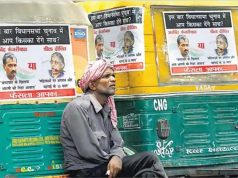The Government introduced National Food Security Bill in the Lok Sabha on 22 December 2011 to address food security in a comprehensive manner. The recently concluded session of parliament was supposed to pass the bill. However, the unproductive session of the parliament failed to pass the bill. This presents us with an opportunity to re-think the need and full implications of the bill.
The food-grain entitlement under the proposed bill covers up to 75 percent of the rural population and up to 50 percent of the urban population for subsidised food-grains under the Targeted Public Distribution System (TPDS), besides provision for nutritional support to women and children. Who could be against an idea so noble? Without getting ahead of ourselves let’s see what this entitlement translates into.
According to the 2011 census, 68.8 percent of India’s population is rural while 31.2 percent is urban. Thus, according to the 2011 census, the entitlement would extend to 67 percent of India’s total population, about 814 million people. Thus, it is safe to say that the bill assumes that 814 million Indians are poor and cannot afford basic food-grains at current market prices. Is that so?
Periodic surveys conducted by National Sample Survey Organisation (NSSO) show that, over the years, increasing proportions of people have come to respond in negative to the question, “Have you been hungry in some or all months of the year?” In 1983 survey, some 18.9 percent of the rural respondents and 6.7 percent of urban respondents answered that they went hungry in some months of the year. It fell in 1993-94 to 5.5 percent in rural and 1.9 percent in urban areas. By 2004-05, these percentages had fallen to 2.6 and 0.6 percent respectively. If India continues to grow at a healthy rate, we can safely assume that the 2011-12 survey will throw an even smaller percent of respondents answering in the affirmative.
This fact has been covered in detail in 2012 book India’s Tryst with Destiny by Jagdish Bhagwati and Arvind Panagariya. This was also the central theme of a recent article in Economic Times by Swaminathan Aiyar and Arvind Virmani’s 2006 working paper for the Planning Commission titled Poverty And Hunger In India: What Is Needed To Eliminate Them.
This establishes that India may be a poor country, but it is not a predominantly starving country.
The policymakers may have had the best of interest of poor people in heart while conceiving the idea for provision of food security. However, the facts say that this is an act of forced philanthropy at taxpayer’s cost, declaring people hungry even when people themselves respond otherwise. The total cost of the bill could range from USD 17 billion to USD 23 billion per year based on various estimates. This is no small sum. Why not use some of this money to strengthen first order public goods like our inefficient law and order system.
Post Disclaimer
The opinions expressed in this essay are those of the authors. They do not purport to reflect the opinions or views of CCS.





